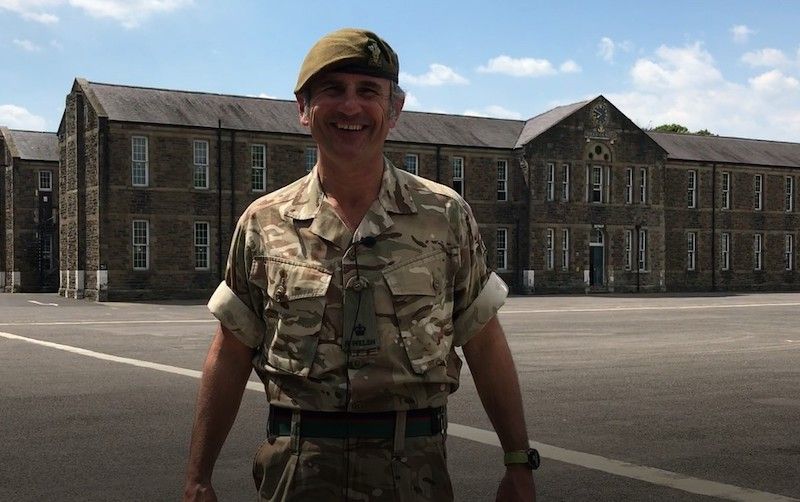Mental health guide receives warm response from military unit in Wales
The voice over for the mental health tips and tools for veterans was recorded by Broadchurch and Hinterland actor Matthew Gravelle.

Matthew Gravelle at Maindy Barracks
Submitted by Rachel MacManus
A charity that focuses on supporting veterans and their families has been expanding its mental health and wellbeing offerings during the coronavirus pandemic with great success.
The most recent is a Welsh and English language recording of breathing exercises and materials, with a voice over provided by Matthew Gravelle, an actor from Cardiff, Wales.
The Field Guide to Self-Care was initially created to help military personnel affected by traumatic events related to their service, but the charity has recognised that frontline health and care workers are experiencing similar challenges to those our Armed Forces face on the battlefield.
The materials have received a positive response from the British Armed Forces, so Matthew visited the Royal Welsh's Maindy Barracks to find out what work is being carried out by Shenkin Company in response to the outbreak.
Major Dominic Pascoe, who commands the 91-strong team of Army Reservists, explained the vital role they are playing to support civilian frontline workers in the NHS, Welsh Ambulance Service and Welsh Government. During the current crisis they are self-isolating from loved ones to perform their duties.

Major Pascoe said: “From the very first flight, that PPE was in action within 4 hours of the aeroplane touching the ground, so it’s quite impressive.
"We’ve been freeing up ambulance drivers, allowing one paramedic to have a little bit of respite or to concentrate on other tasks.
"We’ve decontaminated around 6,000 ambulances which frees up about 50 call outs, per ambulance, per week.”
“For us, this is the first time that we’ve been mobilised to this many numbers in our history and – this regiment is over 300 years old - it’s the first time we’ve directly served our communities, so it’s a totally different sort of challenge.”
The Field Guide offers a range of tips and tools, developed for those who have experienced traumatic events or have been affected by working in high intensity situations, but Help for Heroes also hopes that it will be a resource for NHS heroes too.

Help for Heroes Community Recovery Manager for Wales and Hereford, Shelley Elgin said: "The guide is broken down into three parts; Body, Emotion and Mind and can be worked through in one go or one at a time.
“We hope this is a useful resource for our NHS heroes, and for anyone else who may be feeling stressed or anxious during these difficult times.”


